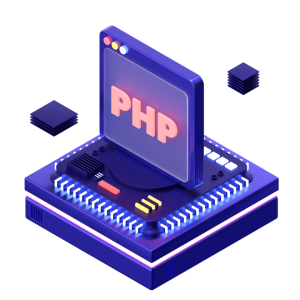Welcome to the exciting intersection of PHP and Machine Learning APIs! In today’s rapidly evolving digital landscape, the fusion of these two technologies opens up a world of possibilities for developers and businesses alike. From enhancing user experiences to optimizing processes, the integration of PHP with Machine Learning APIs brings forth a new era of innovation and efficiency. Let’s delve into how this powerful combination can revolutionize your projects and propel you ahead in the competitive tech realm.
Use Cases for PHP and Machine Learning Integration
With the power of PHP and Machine Learning APIs combined, the possibilities for integration are vast. One key use case is in e-commerce platforms where ML algorithms can analyze customer behavior to recommend personalized products. In healthcare, PHP can interact with ML models to predict patient outcomes based on medical data.
For content management systems, integrating PHP with ML APIs can enhance search functionality by providing more relevant results. Another interesting application is in fraud detection where machine learning algorithms can flag suspicious activities in real-time transactions processed through PHP scripts.
In marketing automation tools, combining PHP with ML technology enables targeted campaigns based on user preferences and past interactions. The fusion of these technologies opens up a world of innovative solutions across various industries.
Best Practices for Using PHP and Machine Learning APIs
When integrating PHP with Machine Learning APIs, it is essential to follow best practices for a seamless experience.
Ensure that your PHP code is well-structured and follows coding standards to maintain readability and scalability. Utilize frameworks like Laravel or Symfony for efficient development.
Carefully select the appropriate Machine Learning API based on your project requirements. Consider factors such as accuracy, speed, and ease of integration.
Implement proper error handling mechanisms in your code to gracefully manage exceptions that may arise during API calls or data processing.
Optimize your code by caching API responses and minimizing unnecessary requests to enhance performance.
Regularly update both your PHP version and Machine Learning API libraries to leverage the latest features and security patches for a robust integration.
Challenges and Solutions for Integration
Integrating PHP with machine learning APIs comes with its own set of challenges. One common issue is ensuring seamless communication between the two systems, as they may use different data formats and structures. This can lead to compatibility issues that need to be addressed for successful integration.
Another challenge is managing the complexity of handling large datasets efficiently within PHP scripts. Machine learning algorithms often require extensive computational resources, which can strain the capabilities of PHP servers if not optimized properly.
To overcome these hurdles, developers can implement caching mechanisms to reduce redundant API calls and enhance performance. Additionally, utilizing asynchronous processing techniques can help distribute workloads effectively and improve overall system responsiveness.
By leveraging libraries and frameworks that offer support for both PHP and machine learning functionalities, developers can streamline the integration process and mitigate potential roadblocks along the way.
Conclusion
In the rapidly evolving landscape of technology, the integration of PHP and Machine Learning APIs opens up a world of possibilities for developers and businesses alike. By combining the power of PHP’s flexibility with the advanced capabilities of Machine Learning algorithms, innovative solutions can be created to address complex problems.
From enhancing user experiences with personalized recommendations to automating decision-making processes, the use cases for PHP and Machine Learning integration are diverse and impactful. Whether it’s in e-commerce, healthcare, finance, or any other industry, this fusion can drive efficiency, effectiveness, and competitiveness.
To ensure successful integration, it is essential to follow best practices such as selecting reliable APIs, optimizing code performance, handling data securely, and continuously monitoring results. Despite challenges like data compatibility issues or API updates disrupting functionality, these obstacles can be overcome through proactive planning and adaptation strategies.
The fusion of PHP with Machine Learning APIs represents a powerful synergy that has the potential to revolutionize how applications are developed and utilized across various domains. Embracing this blend not only empowers developers to create smarter solutions but also enables businesses to stay ahead in an increasingly competitive digital landscape. As advancements continue in both technologies, the opportunities for innovation through their integration will only grow further, ushering in a new era of intelligent applications tailored to meet evolving needs.

